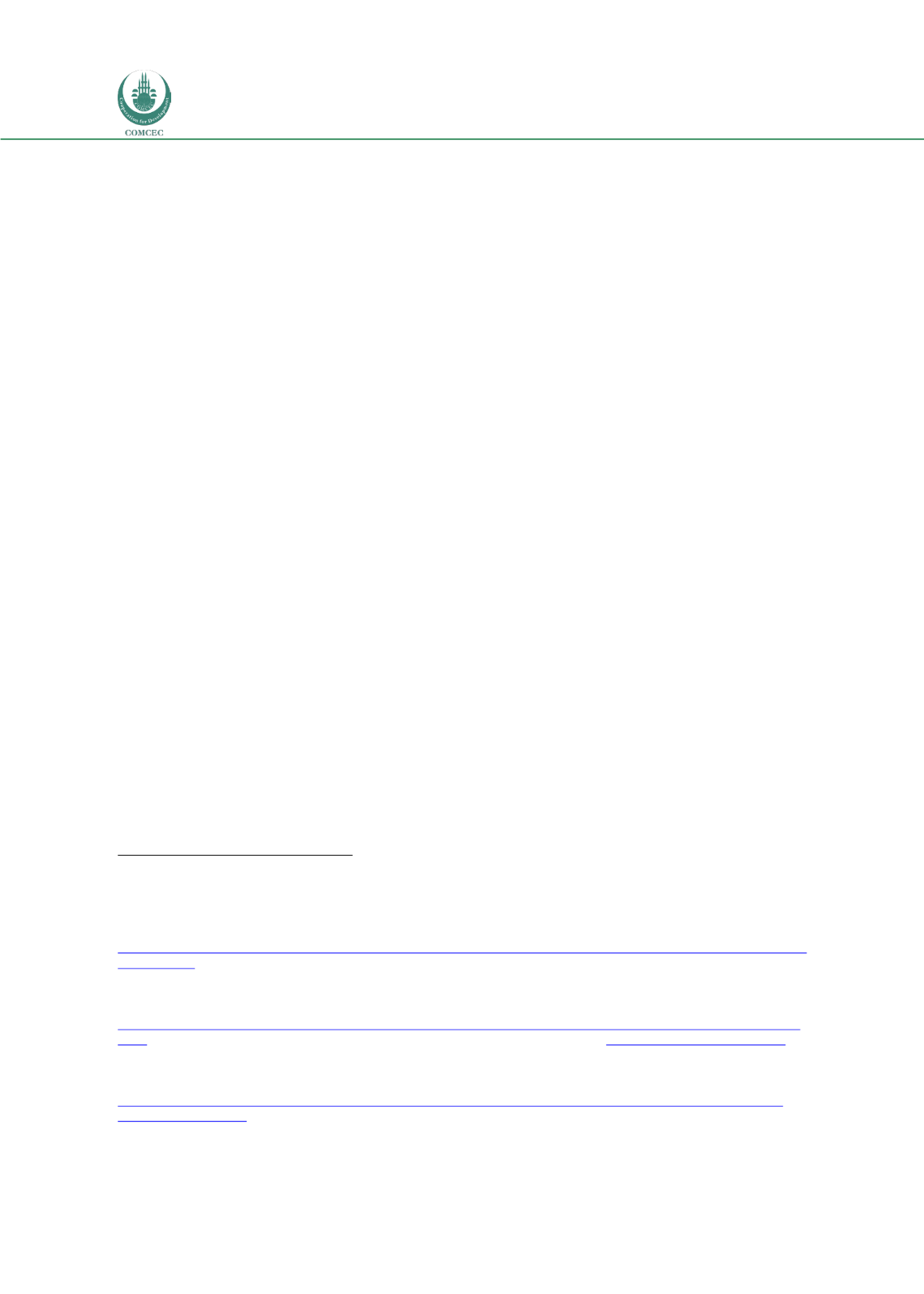

Forced Migration in the OIC Member Countries:
Policy Framework Adopted by Host Countries
126
programs designed to meet integration needs may not exist. In this dimension, Rabat is the
national leader of best practice in educational integration.
390
Health
Officially, all migrants in Morocco (regardless of legal status) have access to emergency health
services.
391
In 2003, irregular migrants were also allowed free access to certain preventive
and treatment services through a framework of programs against communicable diseases.
392
Only regularized migrants and government-recognized refugees, however, have access to
medical specialists.
393
Regularized migrants and refugees also have access to the services of
the
Régime d’Assistance Médicale
(RAMED), which grants basic medical insurance to
impoverished or vulnerable social groups.
394
UNHCR offers to reimburse the cost of private
medical expenses for refugees and asylum seekers, and works with the association Action
Urgence to provide this group with consultations and referrals to health care institutions.
395
This accounts for the largest expense of UNCHR Morocco.
396
As part of the SNIA, the Ministry of Health has created a national strategy designed to ensure
the provision of sufficient health care to migrants and refugees. Objectives include
guaranteeing migrants’ access to health care services, enhancing the quality of such services,
training health care professionals on care services specific to the needs of migrants (e.g.
tropical diseases), and increased monitoring and evaluation of health care for migrant
populations.
397
MCMREAM has also signed a framework convention with the Moroccan Red
Crescent to provide medical and social assistance for up to 13,000 migrants.
398
Similar to efforts in providing educational services, such initiatives to ensure health care
access for refugees and migrants continue to be hindered by practical and structural
difficulties. One specifically identified area of need is the deficiency of psychosocial care in
Morocco. Due to the general lack of sufficient psychosocial care, psychosocial support is
typically provided in an ad hoc manner by UNHCR and its implementing partners (namely
FOO), targeting populations of extreme need such as survivors of sexual and gender-based
violence.
399
A study by the Ministry of Health showed that while over 90 percent of sub-
Saharan irregular migrants had access to health care, over 50 percent still suffered from a host
of psychological, digestive and infectious issues.
400
390
Tamkine Migrants,
Les enfants migrants et l’école marocaine
391
Interview conducted by MPI, March 2016
392
Secretary General of the Ministry of Health, “Allocution de Monsieur le Secrétaire Général à l’occasion de l’inauguration
des travaux de l’Atelier de réflexion sur l’élaboration du Plan Stratégique National sur la Santé des Migrants,” (presentation
at l’Ecole Nationale de Santé Publique, Rabat, January 21-22, 2016),
http://www.sante.gov.ma/Documents/2016/01/Projet%20discours%20Monsieur%20le%20Secr%C3%A9taire%20G%C3 %A9neral.pdf .393
Interview with UNHCR, March 2016
394
Secretary General of the Ministry of Health, “Allocution de Monsieur le Secrétaire Général”
395
Interview with UNHCR, March 2016; UNHCR, “Morocco Fact Sheet, March 2016” accessed August 9, 2016,
http://ma.one.un.org/content/dam/unct/morocco/docs/UNHCR/UNHCR%20Morocco_Factsheet_March%202016%20EN G.pdf ;Association Action Urgence (AAU), “Qui sommes nous?” accessed August 9, 2016
, http://www.actionurgence.org/ .396
Interview with UNHCR, March 2016
397
Secretary General of the Ministry of Health, “Allocution de Monsieur le Secrétaire Général”
398
MCMREAM, Stratégie Nationale d'Immigration et d'Asile, accessed August 9, 2016,
http://www.marocainsdumonde.gov.ma/fr/le-minist%C3%A8re/affaires-de-la-migration/strat%C3%A9gie-nationale- dimmigration-et-dasile .399
UNHCR Morocco: Fact sheet, March 2016
400
Secretary General of the Ministry of Health, “Allocution de Monsieur le Secrétaire Général”
















